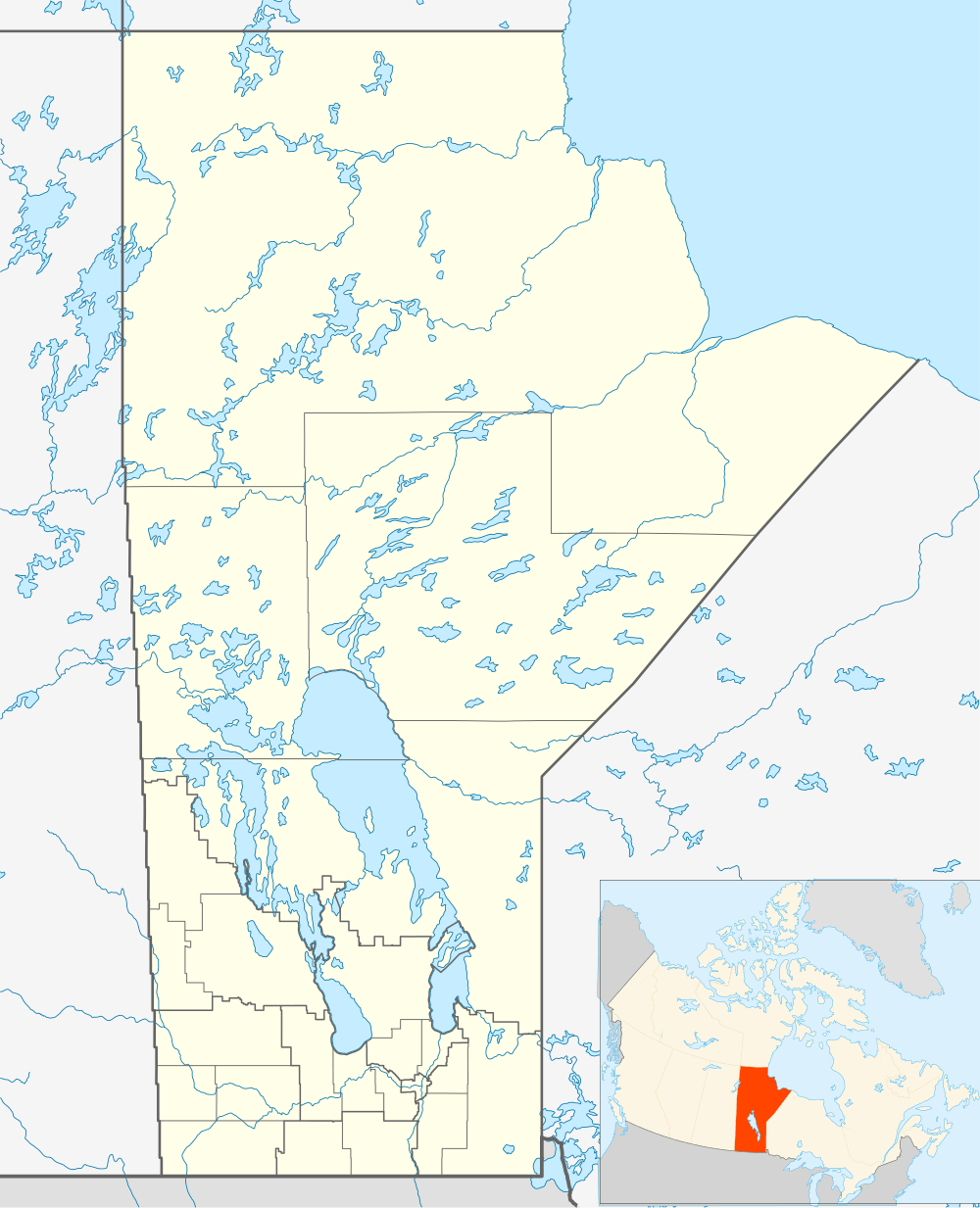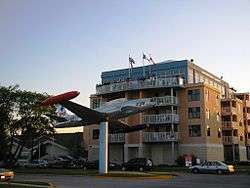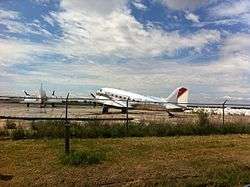Gimli Industrial Park Airport
| Gimli Industrial Park Airport | |||||||||||
|---|---|---|---|---|---|---|---|---|---|---|---|
| Summary | |||||||||||
| Airport type | public | ||||||||||
| Operator | Rural Municipality of Gimli | ||||||||||
| Location | Gimli RM, near Gimli, Manitoba | ||||||||||
| Time zone | CST (UTC−06:00) | ||||||||||
| • Summer (DST) | CDT (UTC−05:00) | ||||||||||
| Elevation AMSL | 753 ft / 230 m | ||||||||||
| Coordinates | 50°37′41″N 097°02′36″W / 50.62806°N 97.04333°WCoordinates: 50°37′41″N 097°02′36″W / 50.62806°N 97.04333°W | ||||||||||
| Map | |||||||||||
 CYGM Location in Manitoba | |||||||||||
| Runways | |||||||||||
| |||||||||||
|
Source: Canada Flight Supplement[1] | |||||||||||
Gimli Industrial Park Airport, (IATA: YGM, ICAO: CYGM), is a former military field located 2 nautical miles (3.7 km; 2.3 mi) west of Gimli, Manitoba, Canada. The field is now operated as a civilian airport, with one of the original parallel runways decommissioned and now a significant portion of Gimli Motorsports Park. Flying-related activities here include use by Manitoba Provincial Government's water bomber squadron, the Gimli Cadet Flying Site, and two private flying schools. Gimli is also used by No. 435 Transport and Rescue Squadron based out of No. 17 Wing Winnipeg, for training purposes, and as a skydive drop zone by Skydive Manitoba. In the summertime the airport hosts glider pilot training for air cadets as Regional Gliding School (Northwest).[2]
History
Opened as RCAF Station Gimli, the airfield served during World War II as the home of Service Flying Training School #18 under the British Commonwealth Air Training Plan. The station closed in September 1971.
Incidents and accidents
In 1983, the airport became famous when Air Canada Boeing 767 C-GAUN ran out of fuel over southern Manitoba and successfully glided to a landing at Gimli Motorsports Park.[3] There were no serious injuries. The aircraft in the incident became popularly referred to as the Gimli Glider.
Three people were killed on August 27, 1992 when a NewCal Aviation turbine-modified de Havilland Canada DHC-4 Caribou they were aboard crashed on the airfield during climb-out after a short take-off from the airport. The aircraft nosed sharply up, arced right and nosed into the ground. Although there was no explosion, a fire started and consumed the aircraft's remains. The cause was listed as failure to deactivate the plane's gust-lock control in the cockpit, which was interlocked into the throttles when the plane was powered by radial piston engines. This feature was defeated in the plane's conversion to turboprop.[4] Despite having a statutory duty to "investigate civil aviation occurrences that take place in or over Canada and any place under Canadian air traffic control" the Transportation Safety Board of Canada has no record of this incident.


Tenants
- Gimli Motorsports Park
- Gimli Cadet Flying Training Centre
- Skydive Manitoba
- Prairie Helicopters Incorporated
- Interlake Aviation Flight School & Charter Service
See also
References
- ↑ Canada Flight Supplement. Effective 0901Z 27 April 2017 to 0901Z 22 June 2017
- ↑ http://www.cadets.ca/en/summer-opportunities/training-centres-northwest-gliding-about.page
- ↑ http://www.gimlimotorsportspark.com
- ↑ de Havilland Canada DHC-4 Caribou crash